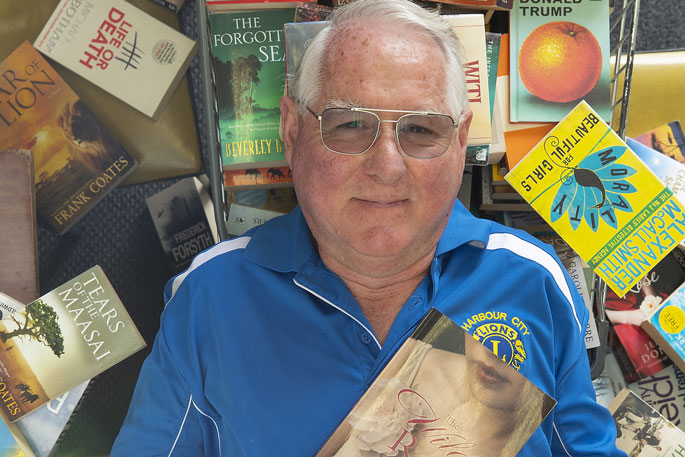Utah Legislature Bans Pornographic Books In Schools With HB374 | Opinion
/cdn.vox-cdn.com/uploads/chorus_asset/file/23484448/merlin_2915930.jpg)
This year, the Utah Legislature passed HB374, a bill that bans children’s access to pornography in schools. Since then, there have been continuous attempts to distort the intent of HB374 and prevent its full implementation.
Many claim that efforts to protect children from school-provided pornography amount to nothing more than racist, bigoted, or prudish “book burning.” If you have not seen the types of indecent materials involved, you can review books found in utah schools in line.
To be clear, HB374 is not calling for book bans. It actually enforces the exact same content limits already in the Utah code for materials that students can access on their own and parallels a rating system used by all other forms of media – movies, TV , music and video games.
Pornography is an addictive stimulant that damages relationships and incurs significant costs for individuals and families. Studies indicate that adolescent exposure to pornography is associated with an increased risk of engaging in dangerous sexual behaviors. For these and other reasons, the Utah Legislature and Governor have declared pornography a public health crisis.
Bills have been passed to protect children from Internet pornography in schools, but students need the same protection from books. The creation of the “New Adult” genre in 2009, aimed at 18-30 year olds, called for books with more detailed sexual content. These often obscene books are now found in many Utah middle and high schools.
Parents in Utah are growing increasingly frustrated as they witness the inaction of government and school officials in the face of enormous opposition to policies enacted in HB374. The American Civil Liberties Union threatens to sue districts that remove content we deem to be pornographic. The American Library Association is pushing policies similar to the unworkable “book challenge” process that Utah schools have adopted, and they are awarding librarians $2,000 to defend what they call “intellectual freedom”, including the “right to read” obscene books for children.
Parents in Utah asked school districts to remove the books with obscene content through the appeals process, but their appeals were shockingly denied. For example, a large district in Utah recently heard challenges to two indecent books after the enactment of HB374. The challenges for both books were unsuccessful, and the school district will continue to distribute the books and their pornographic content in educational settings.
Opponents of HB374 claim that a three-pronged test named for Miller v. California (1973) must be applied to determine obscenity. But the Miller case was decided before pornography was widely considered an addictive stimulant. The case also concerned the distribution of adult media, not material harmful to minors and distributed by public schools.
In another case, Island Trees School District v. Pico (1982), three judges suggested that certain procedures apply to the removal of materials from school libraries; however, vulgar materials can clearly be removed. For these reasons, HB374 has enacted a provision that eliminates the need for the Miller test and states that documents containing graphic descriptions of a sexual nature, as explained in 76-10-1227(1)(a)(i), (ii) and (iii) have no serious value to minors and should be removed from school libraries. Importantly, HB374 includes a provision that allows the USBE to affirmatively approve materials by rule despite some measure of indecency to permit genuine literary works. So the default is to protect children, not expose them to harm.
As lawmakers, we are working with the Utah Attorney General’s Office and members of the State School Board to encourage passage of a rule that will fully implement HB374 and protect minors from sexually explicit, necrophiliac content. , bestial, sadomasochistic and pedophile that is currently found in many schools in Utah. settings.
We unequivocally declare that freedom of expression is vital to our Constitutional Republic. At the same time, we recognize that local and federal obscenity laws have been enacted to protect children from vulgar content, because of the harm it causes. Materials that are inappropriate in school libraries are nevertheless accessible in public libraries, online and in bookstores. Similarly, schools in Utah appropriately block electronic access to students’ pornographic content that is otherwise widely available online.
HB374 eliminates the double standard between electronic and printed obscene content in Utah schools by adopting a protection policy that requires the removal of such content from school facilities for the health and safety of our children. It is time for legislators, law enforcement officers, parents, school librarians, school board members and district officials to work together and take action to fully implement HB374 to protect children. children from these harmful materials.
Rep. Karianne Lisonbee is a Republican representing Syracuse in the Utah House of Representatives.
This letter was also signed by Utah House Speaker Brad Wilson and Utah Representatives. Ken Ivory, Keven Stratton, Walt Brooks, Mike Schultz, Val Peterson, Timothy Hawkes, Jeff Moss, Robert Spendlove, Judy Rohner, Adam Robertson, Jon Hawkins, Kay Christofferson, Mark Strong, Carl Albrecht, Candice Pierucci, Kera Birkeland, Cal Musselman, Mike Petersen , Nelson Abbott, Christine Watkins, Phil Lyman, Jeff Stenquist, Steve Handy, Joel Ferry, Cory Maloy, Brady Brammer, Ryan Wilcox, Mike Kohler, Rex Shipp, Dan Johnson, Casey Snider, Marsha Judkins, Susan Pulsipher, Stephen Whyte, Melissa Ballard, Matt Gwynn, Ray Ward, Karen Peterson, Mike Winder, Cheryl Acton, Lowry Snow, Steve Waldrip, Doug Welton, Jefferson Burton, Doug Sagers and Steven Lund as well as Senate Speaker Stuart Adams and Utah Sens. Chris Wilson, Ann Millner, Evan Vickers, John Johnson, Dan McCay, Keith Grover, Curt Bramble, Lincoln Fillmore, Todd Weiler, Mike Kennedy, Derrin Owens, Wayne Harper, Mike McKell, Jacob Anderegg, Don Ipson, Ron Winterton, Scott Sandall , Kirk Cullimore and David Hinkins.





